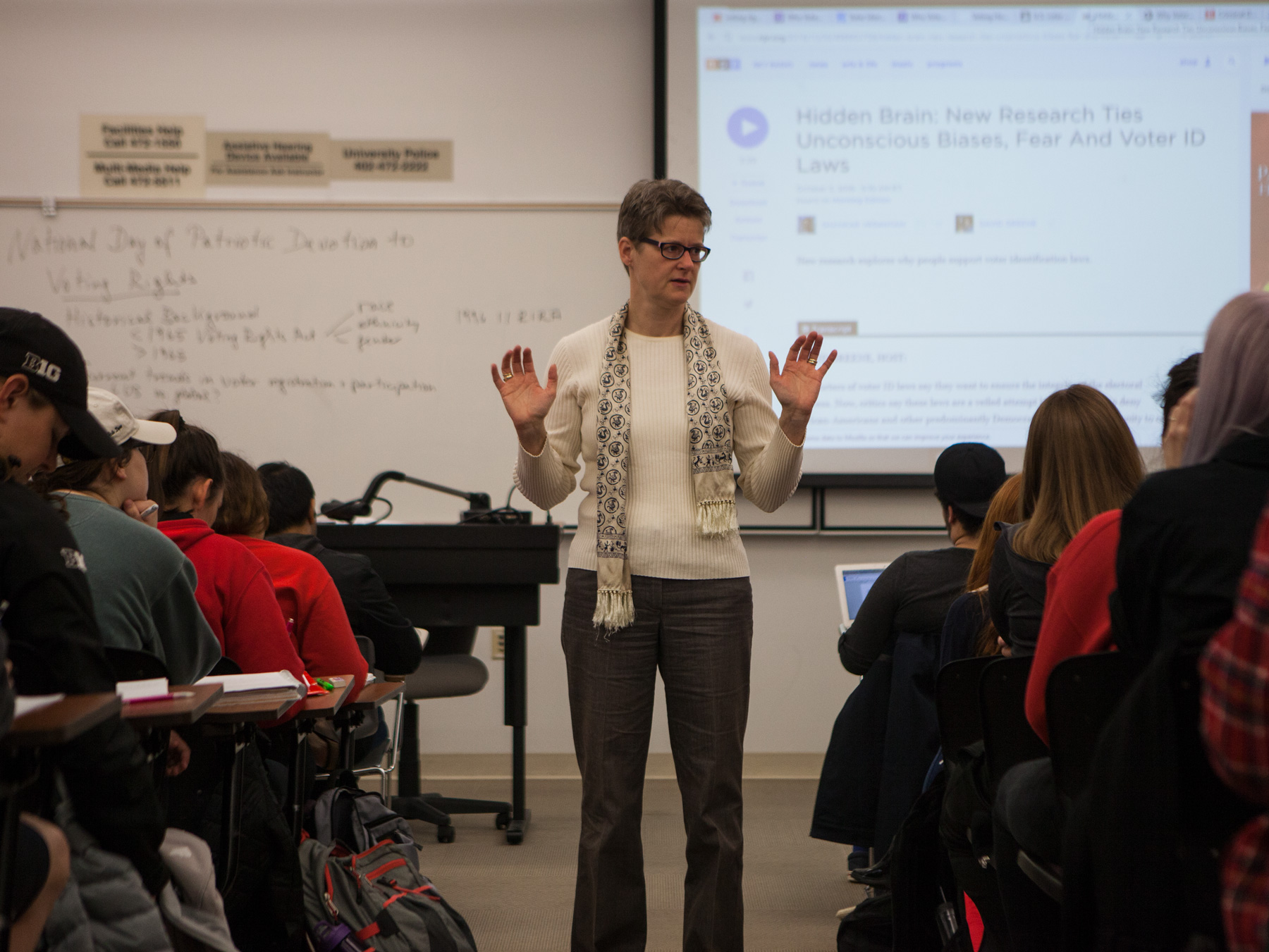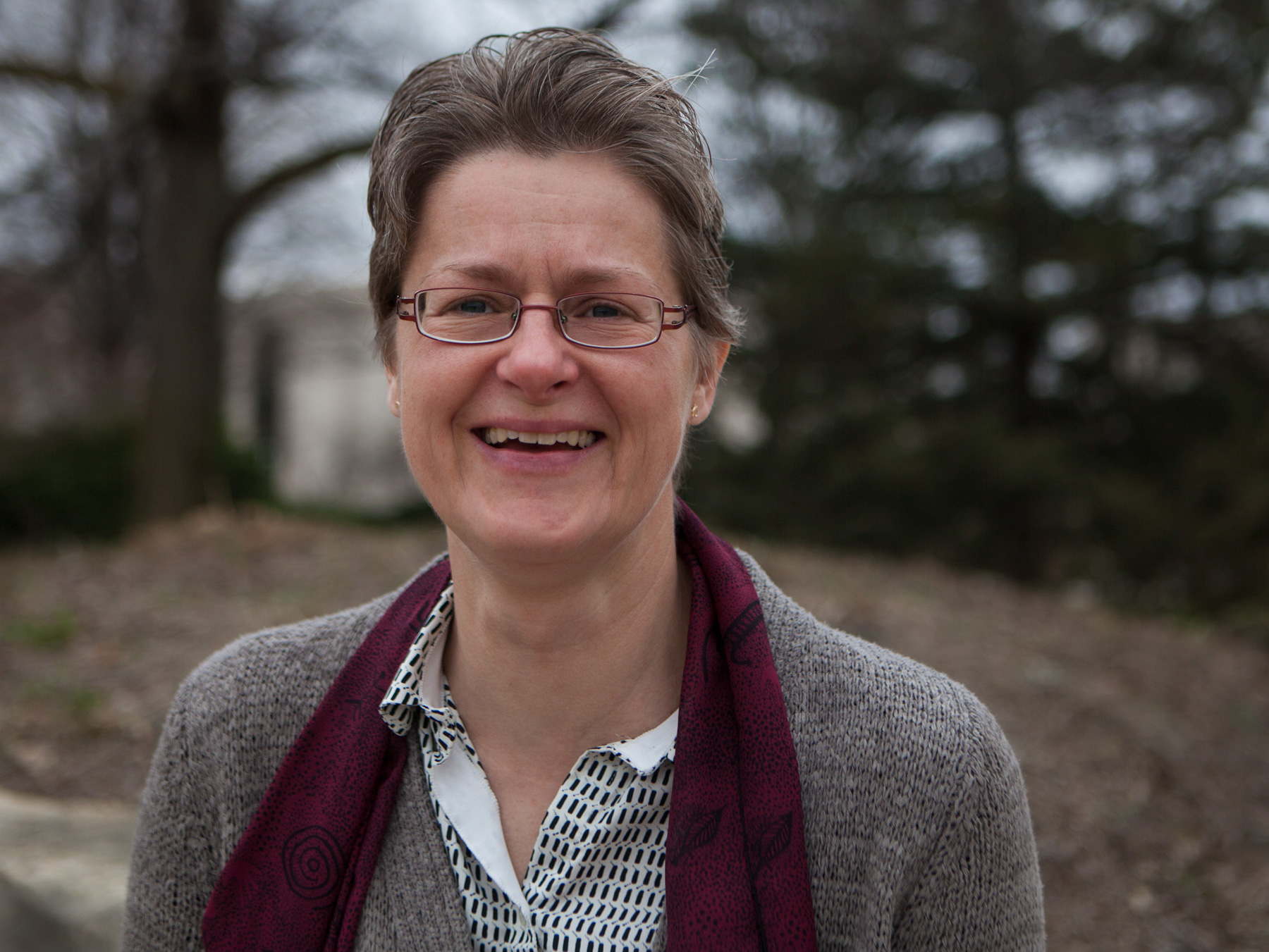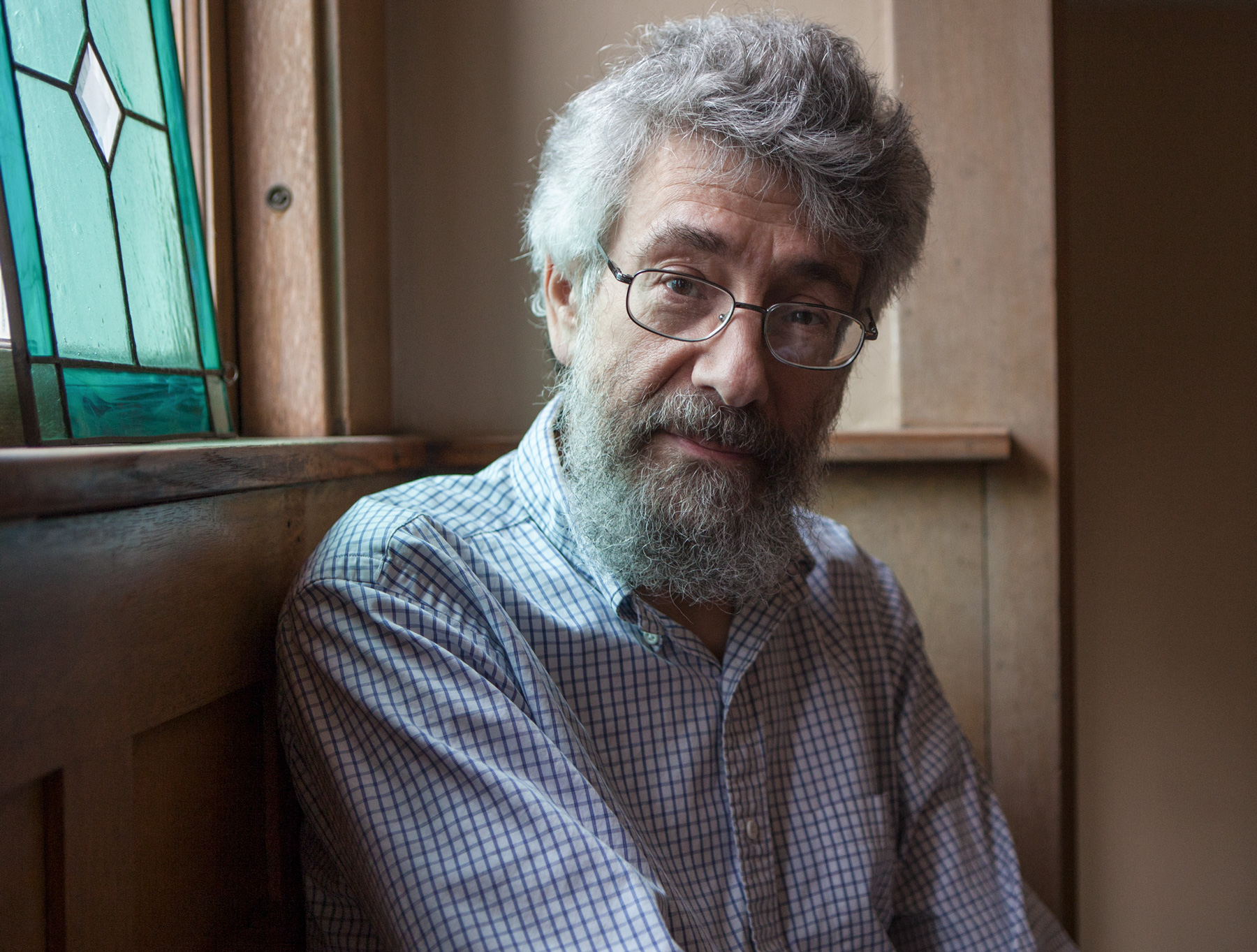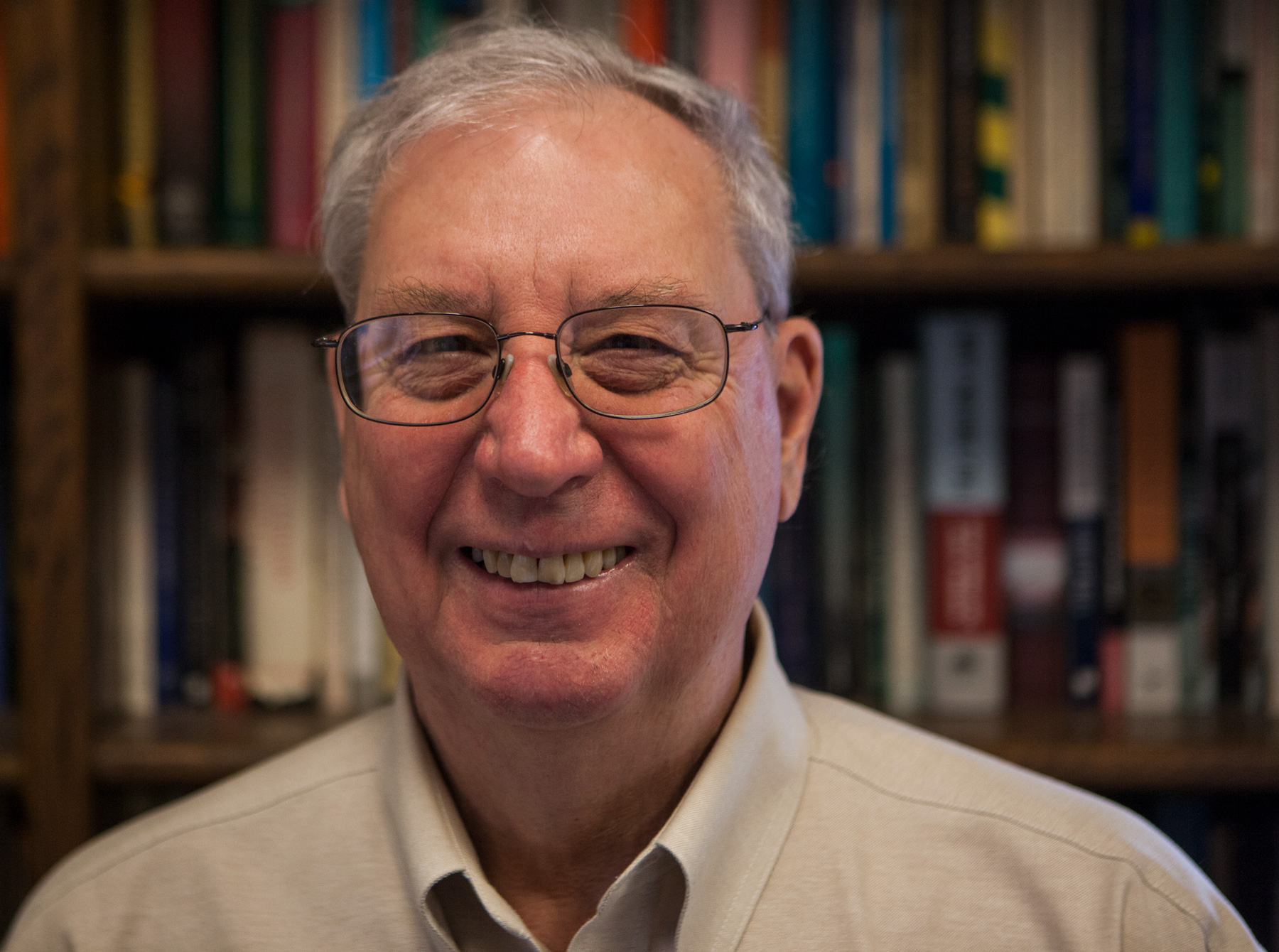

In an era of trigger warnings and political polarization, what is acceptable faculty speech?
For German-born, University of Nebraska-Lincoln sociology professor Regina Werum, the warning signs were all there: campaign rhetoric designed to intimidate minority groups, pointed attacks on the media and a rise in hate crimes toward Muslims, Asians, Jews and other minority groups.
Watching the U.S. presidential campaign, Werum said she saw frightening parallels between Donald Trump and his followers and the Nazi Party. Suddenly the sociologist found herself in a moral and professional dilemma unlike any she’d encountered in her three decades in higher education.
“I understood that [sharing my politics] might make some students uncomfortable,” she said. “But that is also my job as an educator: to make sure students hear not necessarily what they want to hear, what makes them comfortable, but also what they need to hear, even if it makes them uncomfortable.”
The week before the election, Werum settled on a diplomatic solution: let the students vote on whether to hear her views or not. Twice now, she’s held class votes on the matter and both times her students have voted – unanimously – to let her share. For Werum, the decision to share her views in class came down to her responsibility as an educator.
“I decided that no matter what my comfort level is with making myself vulnerable like that in the classroom, it was more important to serve as a role model to my students and to tell them what I think if they were willing to hear it,” Werum said.

Werum’s experience reflects the difficulties many college professors encounter when discussing politics and other sensitive topics in class. According to UNL educational psychology professor David Moshman, issues of intellectual freedom and faculty free speech have always been relevant on college campuses but seem to have grown more so in recent years as more college students have protested classroom discussions of ideas they find offensive or harmful.
“There appears to be a new free speech crisis on campus, and it seems largely due to demands from a new generation of students to be protected from offensive ideas, emotional triggers, and feelings of being intellectually unsafe,” Moshman wrote last July on an intellectual freedom blog he runs for The Huffington Post.

Although he said he doesn’t believe UNL actively interferes with faculty members’ intellectual freedom, Moshman worries that some of the university’s policies leave professors vulnerable to harassment charges, accusations of discrimination and other forms of rebuke from students that make faculty members more likely to self-censor. If this sort of faculty self-censorship permeates an academic environment, the quality of the education provided there will suffer, Moshman said.
“You have more serious education if faculty feel free to address whatever topics and state whatever views they have on that topic,” he said. “But if faculty are too concerned about offending students they may be more cautious than they should…you can learn a lot of facts that way, but you don’t really get to the point of critical thinking.”
Junior computer science major Maggie Witzenburg agrees. Prior to taking Werum’s Sociology of Race and Ethnicity course this semester, she said she’d never had a class that challenged her views so regularly. That valuable educational experience wouldn’t have been possible without free and often uncomfortable classroom discussions of sensitive topics, she said.
“When professors talk about [sensitive topics] in class and they push you to think about those things in different ways, it really is a valuable experience,” Witzenburg said. “If discussion is limited so that everyone feels comfortable no one is going to learn anything and nothing is ever going to change in the world.”
of students say professors should be able to openly express their political views in the classroom.
For some students, however, total academic freedom in the classroom can have unintended consequences. Freshman international business major Quincey Bernard said he believes that while sensitive classroom debates have a time and place, there should be limits for what professors can say in class. As a Haitian native, Bernard said he would take offense if a white professor used the N-word in certain contexts or advocated for white colonialism just to encourage class debate.
“It depends on the class and the context, but once a professor sees that people are getting upset that’s when they need to stop,” Bernard said. “Some people in the class can learn from being uncomfortable, and some will learn and feel even worse.”
- Junior Maggie Witzenburg
According to agricultural economics professor and chair of UNL’s Academic Rights and Responsibilities Committee, Wes Peterson, intellectual freedom comes under fire from both ends of America’s political divide, especially in today’s polarized climate.
“A lot of [the opposition to intellectual freedom] has been fed by the current political rancor we have, where it’s pretty hard for a lot of people to accept that folks on the other side are even human,” Peterson said. “There’s not a lot of civility in our discourse these days, and I think all of this fits into that a little bit.”
As chair of ARRC, Peterson is in charge of defending intellectual freedom at UNL. He leads a committee of 36 professors, whose job is to oversee a wide array of complaints and issues related to academic freedom, including tenure disputes, academic misconduct cases and complaints of intellectual censorship.
“It’s just extraordinary the ways people can find to get upset about things around here,” Peterson said.

While he said his committee receives 10 to 12 complaints a year, Peterson added that only a handful of those end up in formal adjudication. For the most part, Peterson said he doesn’t think UNL has violated academic freedom significantly in any way during his time on the committee – with one exception.
In 2008 the College of Education invited University of Illinois professor William Ayers to speak on UNL’s city campus. The co-founder of a radical anti-war group during the Vietnam War, Ayers had recently gained notoriety when John McCain’s presidential campaign attempted to link him to then-Democratic nominee Barack Obama, who worked with Ayers as a community organizer in Chicago.
Thanks to the Obama-Ayers controversy, Ayers’ scheduled visit to UNL became an unexpected scandal for the administration, attracting fierce backlash from conservatives across the state.
When the school started getting bomb threats among the hundreds of angry letters they received about Ayers, former Chancellor Harvey Perlman followed law enforcement’s advice and cancelled Ayers’ visit.
In the aftermath of Perlman’s decision, Peterson and the other members of the ARRC conducted a full investigation of the cancellation, inspired by concerns that Ayers’ talk had been cancelled without consulting the ARRC or consideration of academic freedom. While the investigation confirmed the decision to cancel Ayers’ talk, it also created new procedural guidelines designed to include the ARRC in any such decisions that might be made in the future.
“One of the things we came up with was that if a situation like this were to arise again, there should be at least some academic perspective shaping the decision,” Peterson said. “[That way] the chair for the committee would be involved in the decision rather than just make the decision entirely based on the perceived threat.”
Peterson said he sympathizes with both sides of the intellectual freedom debate.
“I’m not wild about the idea of censoring stuff,” he said. “I’m not wild about trying to shelter people from anything they might find offensive. On the other hand, we ought to be polite in our interactions with people, and that means not throwing the N-word or something in people’s faces just to shock them. Academic freedom is not a license to do absolutely anything.”